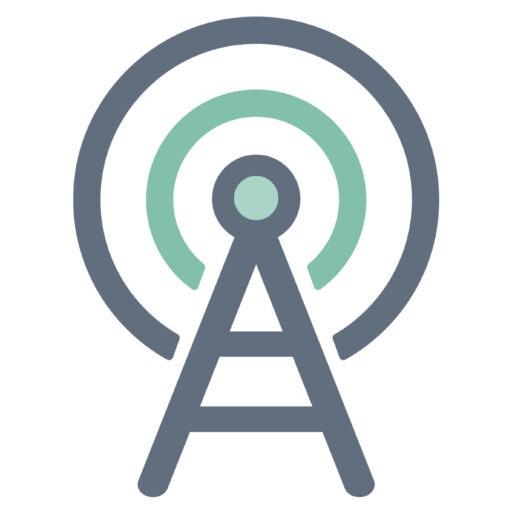Mirami is a powerful platform that focuses on enhancing user engagement and collaboration through innovative communication tools. This platform enables members to connect, share ideas, and foster team synergies, making it ideal for organizations looking to improve productivity and morale. Offering features like instant messaging, video conferencing, and project management capabilities, Mirami aims to streamline workflows and bring teams closer together, regardless of their physical location.
Mirami prides itself on a user-friendly interface and extensive customization options, allowing teams to tailor the platform to their specific needs. As companies evolve and adapt, Mirami remains a reliable choice for enhancing collaboration, with a pricing model that appeals to both startups and larger enterprises. Visit Mirami for more details and to explore its features.
Slack
Slack is a leading communication tool widely used in various industries to facilitate collaboration and streamline communication within teams. It offers channels, direct messaging, and integrations with numerous third-party applications, making it a robust alternative to Mirami.
- Benefits:
- Highly customizable channels for focused discussions.
- Variety of integrations with productivity tools like Google Drive and Trello.
- User-friendly mobile and desktop applications.
- Disadvantages:
- Limited features in the free version, which may require an upgrade for larger teams.
- Can become overwhelming with numerous active channels.
Slack’s pricing options range from free plans to premium subscriptions, providing various features depending on the chosen tier. Visit Slack.
Microsoft Teams
Microsoft Teams is an integrated platform that combines workplace chat, video conferencing, and file collaboration through Office 365. It competes directly with Mirami by offering comprehensive communication tools that cater to businesses of all sizes.
- Benefits:
- Seamless integration with Microsoft Office applications.
- Robust security and compliance features for enterprise-level users.
- Flexible meeting features with support for large-scale video calls.
- Disadvantages:
- Can be complex for new users unfamiliar with Microsoft products.
- Requires a subscription to Office 365 for full functionality.
Pricing is typically included with an Office 365 subscription, making it a strong contender for existing Microsoft users. Visit Microsoft Teams.
Zoom
Zoom has become synonymous with high-quality video conferencing services, making it a great alternative for teams that prioritize video communication. While it is often associated with video meetings, its chat feature and integrations extend its functionality beyond just virtual calls.
- Benefits:
- Exceptional video and audio quality, flexible meeting options.
- Breakout rooms feature for small group discussions.
- Integration with many productivity and CRM tools.
- Disadvantages:
- Basic plan limits meeting durations and participant numbers.
- Security concerns raised over privacy during meetings.
Zoom offers a free basic plan, with additional features available in its paid plans. Visit Zoom.
Trello
Trello is a visual project management tool that enhances team collaboration by organizing tasks on boards. While it does not directly compete with Mirami in the communication space, it serves as a complement to these platforms by providing an effective way to manage team projects and tasks.
- Benefits:
- Intuitive drag-and-drop interface for task management.
- Integrations with various communication tools, including Slack.
- Can be used for individual and team-based project management.
- Disadvantages:
- Limited features in the free version may not meet extensive project needs.
- Not designed as a communication tool, requiring integration with other platforms.
Trello offers a free plan, with options to upgrade for more advanced features. Visit Trello.
Discord
Originally created for gamers, Discord has grown into a versatile communication platform that allows users to create servers for different communities, making it suitable for both professional teams and social groups.
- Benefits:
- Free to use with numerous features like voice channels and screen sharing.
- Customizable server settings and community management tools.
- Support for integrations with bots to automate tasks.
- Disadvantages:
- Less formal than some professional platforms, which might deter corporate use.
- May have a steeper learning curve for new users.
Discord is completely free to use, making it an accessible choice for many teams. Visit Discord.
Google Chat
Part of Google Workspace, Google Chat is a messaging platform that allows teams to communicate seamlessly across different devices. Integrated with Google’s suite of tools, it enhances collaboration in a familiar environment.
- Benefits:
- Integration with Google Drive and other Google services for easy file sharing.
- Robust security features thanks to Google’s infrastructure.
- Simple interface makes it easy to get started.
- Disadvantages:
- Limitations in customization compared to competitors.
- May require a Google Workspace subscription for full access.
Pricing integrates with Google Workspace subscriptions, providing various pricing tiers. Visit Google Chat.
Each alternative presents unique features and capabilities tailored to different team dynamics and needs. When exploring options, consider your team’s specific requirements to ensure you select the right communication and collaboration tool.
